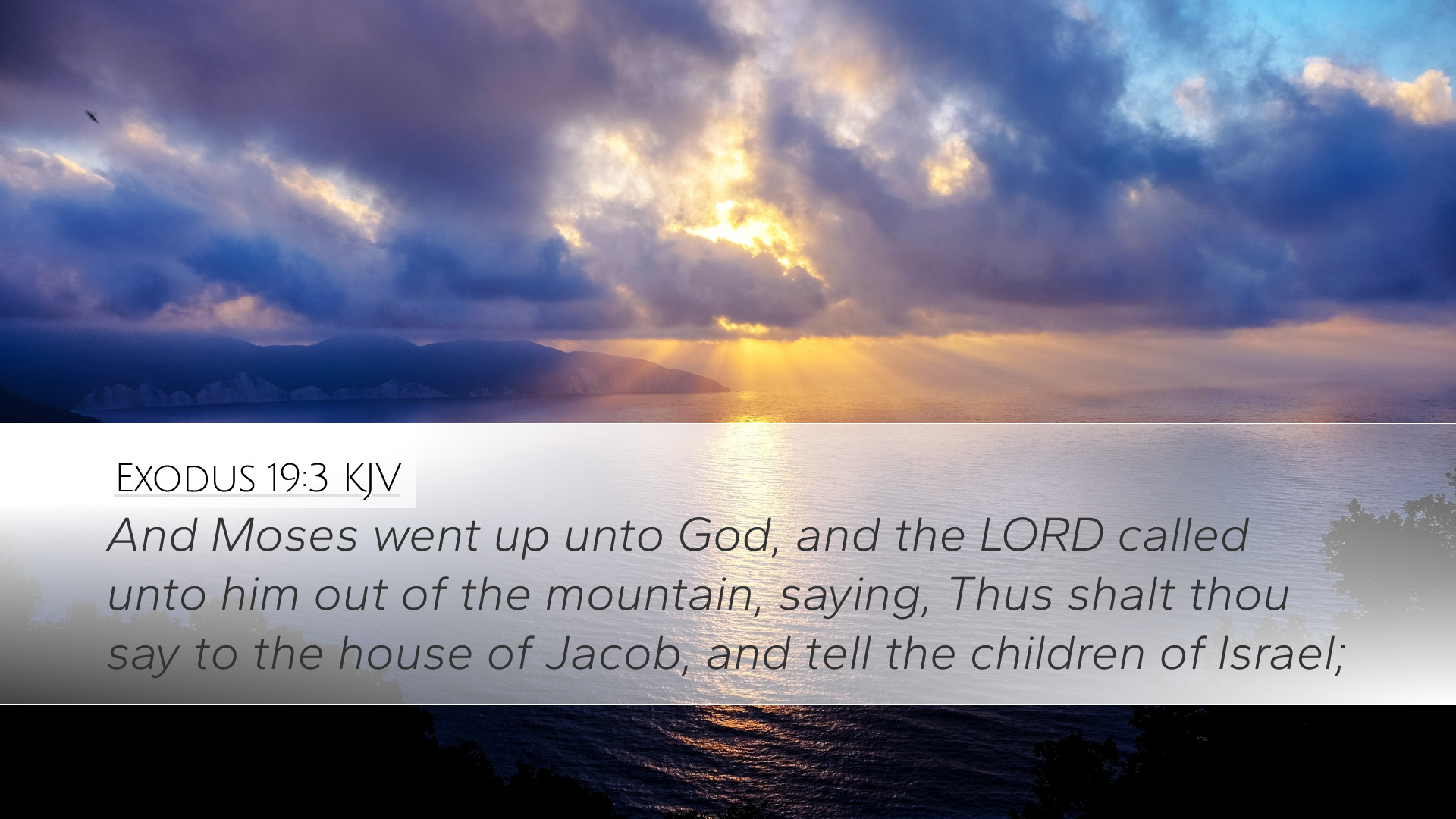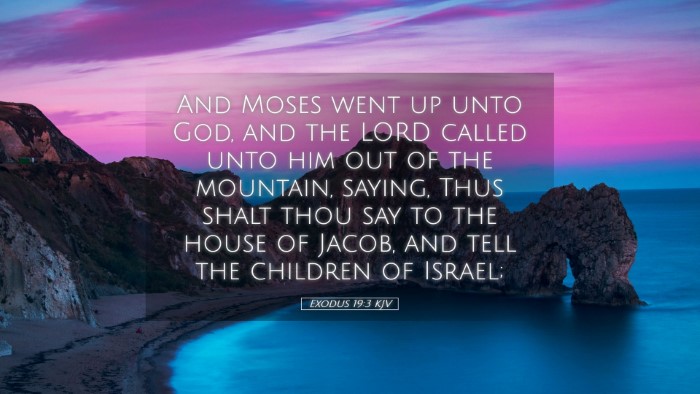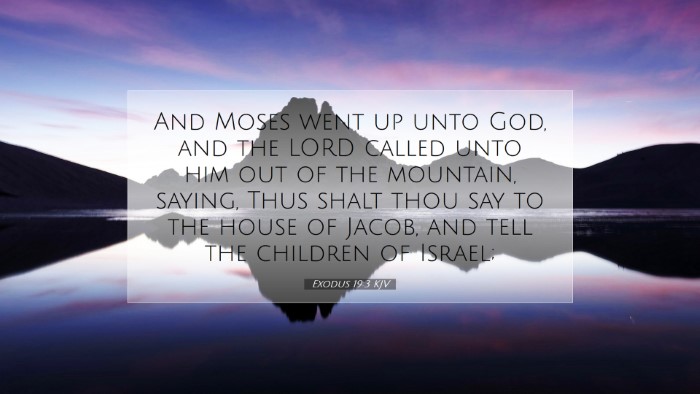Commentary on Exodus 19:3
Text: "And Moses went up unto God, and the LORD called unto him out of the mountain, saying, Thus shalt thou say to the house of Jacob, and tell the children of Israel."
Introduction
This verse marks a significant moment in the relationship between God and the nation of Israel. As Moses ascends the mountain, the communication that unfolds is pivotal for the theological and communal identity of the Israelites. Each commentary sheds light on different aspects of this key biblical episode, providing insights valuable for pastors, students, theologians, and scholars alike.
Moses' Ascendancy as a Mediator
Matthew Henry emphasizes Moses's role as the mediator between God and the people of Israel. He notes that it was through Moses that God chose to communicate His intentions, highlighting the necessity of a representative to convey divine revelations. This points towards the deeper theological reality of mediation, foreshadowing the ultimate mediation of Christ in the New Testament.
The Call of God
In the phrase "the LORD called unto him out of the mountain," Albert Barnes reflects on the significance of God's calling. It indicates an active engagement from God, who desires to communicate His will directly to His chosen leader. Barnes points out that the mountain symbolizes a place of divine revelation and holiness, setting the stage for the giving of the law, which will follow shortly thereafter.
Covenantal Relationship
Adam Clarke elaborates on the context of the statement made by God. He argues that this moment is foundational for understanding God's covenant relationship with Israel. Clarke posits that the instruction to convey a message to "the house of Jacob" and "the children of Israel" serves to remind the Israelites of their unique status as a chosen people. It is crucial in establishing their identity and the obligations that come with it.
Identity and Legacy
- Historical Context: The reminders of Jacob and Israel serve as a link to the patriarchs, suggesting continuity and the fulfillment of promises made to the ancestors of the nation.
- Theological Significance: This reinforces the idea that Israel is not just a random nation; rather, it is a community with a God-given identity, shaped by historical experiences and divine encounters.
Initial Responses and Preparation
Henry notes the initial response by the people as Moses ascends. The act of climbing signifies not only readiness but also a willingness to obey. The calling from the mountain suggests a divine invitation to stand before God with reverence and expectation of revelation. This posture of readiness is crucial in engaging with God’s words and will.
The Role of Communication
Both Barnes and Clarke highlight the importance of communication in this context. God's directive to Moses was clear: transmit this message to the people. The empowering of Moses to speak on behalf of God underscores the nature of prophetic responsibility and the expectation of leaders to faithfully relay divine messages. This principle holds enduring relevance for contemporary spiritual leaders and scholars.
Conclusion
Exodus 19:3 serves as a pivotal moment in biblical history, where God's call to Moses marks the beginning of Israel's preparation to receive the law. This interaction is rich with implications for understanding theologians, pastoral care, and individual believer's journeys. Taking insights from Henry, Barnes, and Clarke reveals a complex interplay of mediation, identity, and divine communication that resonates profoundly throughout the Scripture, illuminating God's continued desire to engage with His people responsibly and lovingly.


